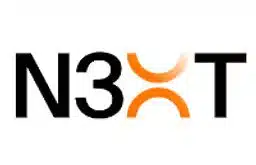The Covid-19 pandemic is driving consumers and merchants to opt for contactless options, and now software that can enable an ordinary smart phone to accept cards via near-field communication is moving faster toward the point of sale. Visa Inc. on Wednesday granted a so-called security compliance allowance to MagicCube Inc.’s iAccept technology, a move that MagicCube’s chief executive, Sam Shawki, says has moved up his expectations for the Santa Clara, Calif.-based company.
“It’s accelerated our market by a couple of years,” Shawki says. “I wasn’t anticipating traction in the United States in 2021.” But now, he says, he is.
Visa’s decision follows an investment the company made in MagicCube in August as part of a larger funding round. The size of the funding was not announced. Visa had also invested in MagicCube in 2015, a year after the technology company’s founding. Shawki worked at Visa for two years, leaving in 2014 to start MagiCube.
With iAccept, a seller can equip an off-the-shelf mobile device to accept NFC cards and process PINs with nothing more than software. Now, with Visa’s certification, the technology can work on all four major payment networks, Shawki says. Visa’s move also means clients can speed up certifications of their equipment, he adds. “My certification lets you get certified really quickly,” Shawki says. How quickly varies, but it can now be a matter of “several days instead of the usual several months,” he says.

In May last year, MagicCube announced its app, which is based on a virtual trusted execution environment, or vTEE, had been certified by EMVCo, the international payments standards body controlled by six global payment card networks, including Visa and Mastercard Inc. This move followed a new standard for the method issued in January 2018 by the PCI Security Standards Council, the Wakefield, Mass.-based organization that establishes rules for payment card security.
MagicCube’s technology, which works with Android devices, is running transactions in the United Kingdom, and with Wednesday’s development could be doing likewise in the U.S. market in the first quarter next year, Shawki says. Spain is another country he expects to come on line “early next year,” as is the Middle East. The latter market is one MagicCube highlighted on Wednesday as one for which it has near-term plans, working with Areeba, an acquirer based in Lebanon. “Areeba plans on expanding its partnership with MagicCube to all the countries it has a presence in,” said Maher Mikati, the company’s chief executive, in a statement. Areeba’s plans include extending its operations into Egypt, Iraq, and the rest of the Middle East and North Africa region, according to MagicCube’s Wednesday announcement.






